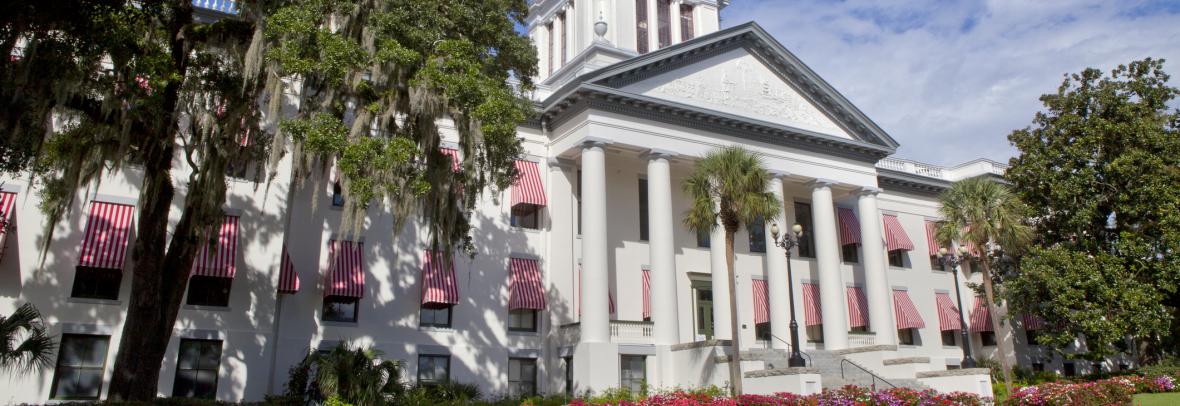
An exhaustive pro-housing bill – one of Florida Realtors’ top priorities – passed the Legislature on Friday. It now needs only Gov. DeSantis’ signature to become law.
TALLAHASSEE, Fla. – On Friday, the Florida Legislature passed SB 102, a comprehensive housing bill and one of Florida Realtors®’ top priorities during the 2023 session.
Florida Senate President Kathleen Passidomo (R-Naples) created and strongly backed the bill, called the “Live Local” plan. On social media, Florida Realtors also thanked Speaker of the House Paul Renner (R-Palm Coast) and Rep. Demi Busatta Cabrera (R-Coral Gables) for their efforts in getting the bill passed.
“The Live Local plan … is the product of my discussions with stakeholders over a number of years,” Passidimo said when introducing the bill in January. “With their advice and input, we are tackling this complex issue from all angles – from incentivizing private sector investment, to increasing state funding, to common sense reductions in regulations, this plan will improve options for both homeownership and affordable rental units in communities across our state.”
No single solution exists for solving Florida’s affordable housing shortage, and the bill does not take a single approach. Any change that might help boost housing and provide shelter for Floridians was considered, and the final version passed on Friday is comprehensive.
Broad changes in SB 102
- Funding: The $811 million in total funding includes $252 million to SHIP (State Housing Initiatives Partnership) and $259 to SAIL (State Housing Initiatives Partnership Program). Going forward, it includes $150 million a year to SAIL for 10 years (total of $1.5 billion)
- Hometown Heroes: It expands the Hometown Heroes Program strongly backed by Florida Realtors in the 2022 session of the Florida Legislature. SB 102 adds to the program by appropriating $100 million more. It also widens eligibility from career-based assistance to income-based down payment assistance. Previously, maximum loans were $25,000; under SB 102, that rises to $35,000.
- Tax credits: It raises community contribution tax credit programs limits, which encourage Florida businesses to make donations towards community development and housing projects for low-income Floridians.
- Private-sector investment: Encourages private investment in affordable housing through a new corporate tax donation program. Businesses can contribute to SAIL instead of paying portions of corporate and insurance premium taxes, up to $100 million a year. It also provides a small refund on sales taxes for building materials used by developments financed through the FHFC (Florida Housing Finance Corporation) and provides additional gap financing to workforce housing programs that may face construction hardships.
- Property tax exemptions: The bill creates three new property tax exemptions:
— It allows counties and municipalities to offer a property tax exemption to property owners who dedicate units for affordable housing at extremely-low-income, very-low-income or both.
— It provides a property tax exemption for land owned by a nonprofit leased for at least 99 years as affordable housing for extremely-low to moderate-income people.
— It authorizes a local-option property-tax exemption to property owners who dedicate units for affordable housing for extremely low income and/or very low income Floridians. - Missing Middle exemption: Creates a new “Missing Middle” property tax exemption for new or recently rehabilitated developments that set aside at least 70 current market rate units into affordable units.
- Local government regulations: Under the bill, a local government cannot regulate the use, density or height (with some exceptions) of an affordable housing development if a proposed rental project is multifamily or mixed-use residential and in any area zoned for commercial, industrial or mixed use. It also defines, by percentages, what types of multifamily projects qualify. A local government cannot require an authorized development to obtain a zoning/land use change, special exception, conditional use approval, variance or comp plan amendment for use, density, or height.
- Public property: It encourages the use of public property for affordable housing and allows for expedited permits and development orders for local governments.
- Rent control: It removes provisions in current law that allowed local governments to impose rent control under certain limited circumstances. Under SB 102, rent control is banned under all circumstances.
- Advertising affordable-housing land: Requires local governments to publish online their inventory of local government-owned property that may be suitable for affordable housing development. It also encourages local governments to consider “best practices” it requires technical assistance to help facilitate the use of public property.
“This is one of the most significant and transformative affordable housing bills seen in Florida since the Sadowski Act was passed in 1992,” says Florida Realtors Vice President of Public Policy Andy Gonzalez. “Not only does it allocate hundreds of millions of new dollars to the state’s affordable housing programs, it does so in a balanced way, prioritizing both homeownership and rental opportunities equally.”
© 2023 Florida Realtors®
Go to Source
Author: kerrys



